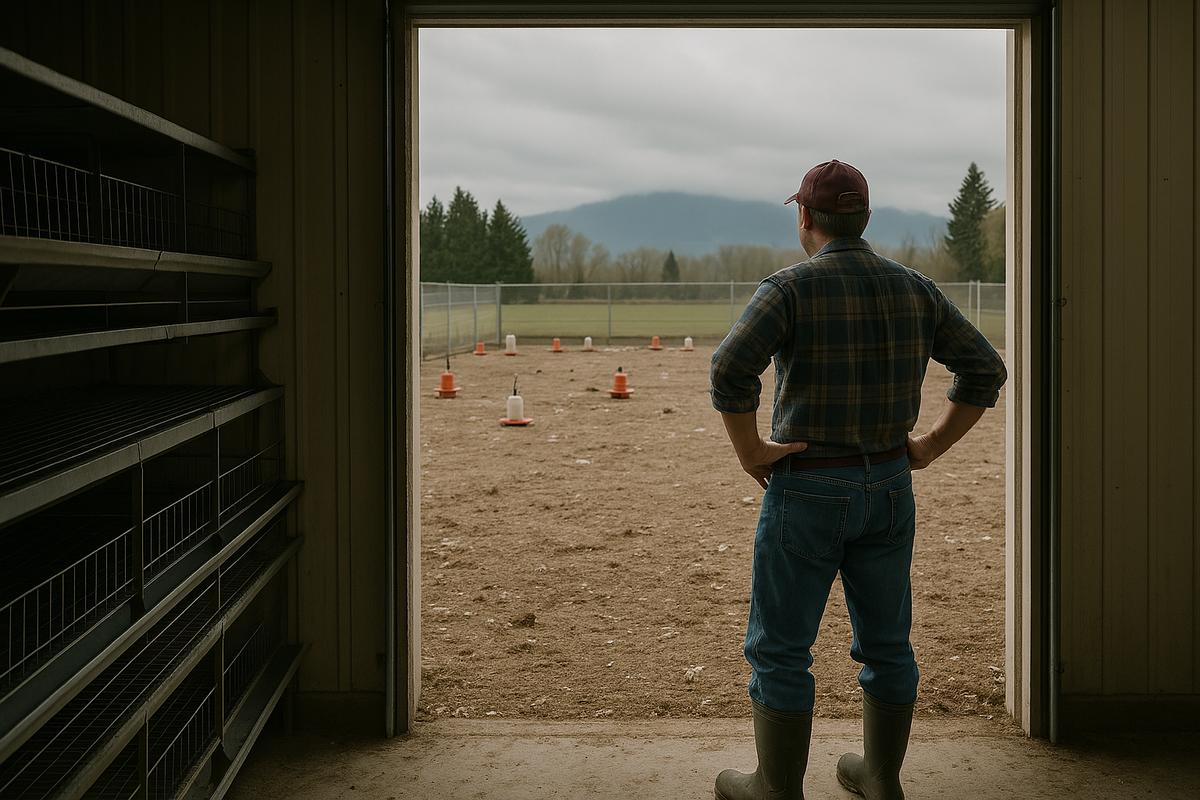
By Jenny Holly Hansen | WBN News | April 18, 2025
Chicken farmers in the Fraser Valley are facing mounting challenges as they attempt to recover from the devastating effects of recent avian influenza outbreaks. After being forced to cull tens of thousands of birds to prevent the spread of the highly contagious virus, many are now grappling with a slow and uncertain restocking process.
The outbreaks, which have hit poultry farms across Canada with particular severity in B.C., led to the destruction of entire flocks in order to contain the disease. While this swift action was necessary for public and animal health, it has left a lasting impact on the region’s poultry producers—many of whom are still unable to source enough replacement chickens and fertile eggs to restart operations at full capacity.
Farmers are reporting months-long delays in acquiring new chicks, as hatcheries struggle to meet increased demand. Supply chain disruptions have compounded the issue, with some hatcheries experiencing their own biosecurity concerns, staffing shortages, or equipment limitations. As a result, even farms cleared for restocking are waiting far longer than anticipated to get back on their feet.
For smaller, family-run poultry operations, the financial toll is significant. “We lost our entire flock and have been waiting over eight weeks to restock,” said one local chicken farmer, who asked not to be named. “Every day without birds is a day without income, but we’re also paying for feed, staff, and biosecurity upkeep. It’s like bleeding money.”
Adding to the strain, insurance often does not cover the full extent of economic losses resulting from disease-related culling. While some producers receive government compensation for the birds culled, this does not account for lost production cycles, future earnings, or the added costs of regaining full operations.
The Chicken Farmers of Canada and the BC Chicken Marketing Board are working with producers and government agencies to facilitate faster restocking, improve access to healthy chicks, and reinforce biosecurity measures to prevent future outbreaks. However, the road to recovery remains uneven.
In the meantime, consumers may see continued volatility in poultry prices and supply at grocery stores as the region’s farms struggle to meet demand. Industry experts say that building a more resilient poultry system in the future will require investments in local hatchery capacity, emergency planning, and disease surveillance.
For now, Fraser Valley farmers are holding onto hope—and grit—as they navigate one of the most difficult chapters in their industry’s recent history.
Let’s Keep Talking:
Jenny is a business insurance broker with Waypoint Insurance.
She is also a business development consultant with Impresario Partners, helping Canadian Business expand overseas.
She can be reached at 604-317-6755 or jholly-hansen@wbnn.news. Connect with Jenny on LinkedIn at https://www.linkedin.com/in/jenny-holly-hansen-365b691b/. Connect with Jenny at BlueSky: https://bsky.app/profile/jennyhollyhansen.bsky.social
Let’s Meet Up:
Jenny Holly Hansen is a cohost with Chris Sturges of the Langley Impact Networking Group. You are welcome to join us on Thursday’s from 4pm to 6pm at: Sidebar Bar and Grill: 100b - 20018 83A Avenue, Langley, BC V2Y 3R4
TAGS: #Jenny Holly Hansen #Avian Flu #Fraser Valley Poultry Industry #The Chicken Farmers of Canada #BC Chicken Marketing Board #Grit


